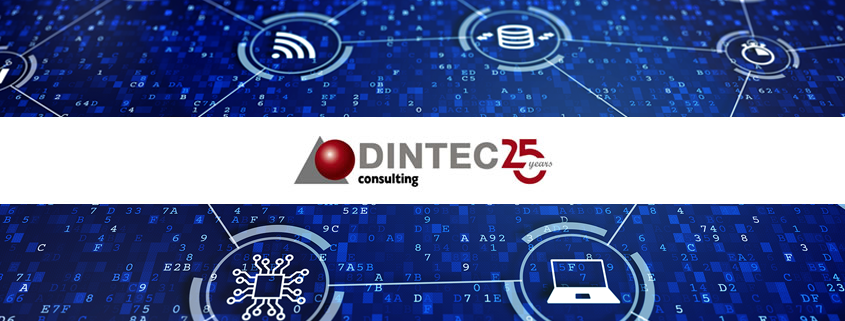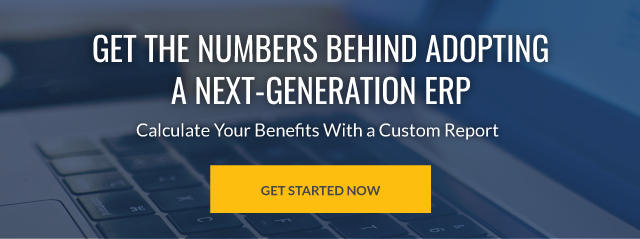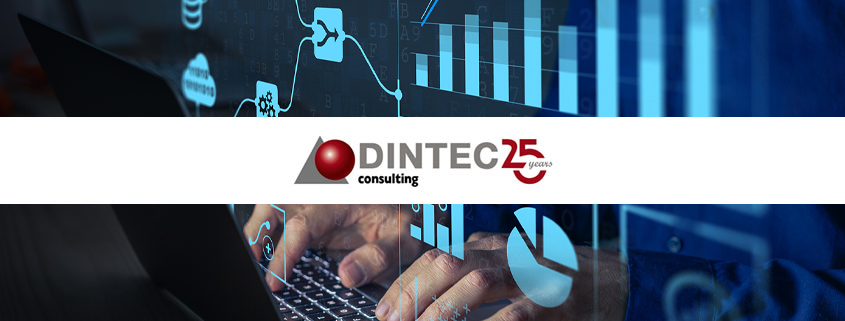Implementing a cloud Enterprise Resource Planning (ERP) solution can enable businesses of all industries and sizes to streamline operations and boost their bottom lines. But despite the extensive technical and financial benefits that leading ERP software offers, many organizations are hesitant to invest the time that a successful implementation requires.
These hesitations, combined with a few common misperceptions, can lead businesses toward approaches that lack the benefits of comprehensive ERP software. The result? Continued operational inefficiencies and missed sales opportunities.
To help you understand what you’re missing by postponing an ERP implementation, here are some of the drawbacks of maintaining business as usual.
Drawback #1: Analysis Paralysis
When it comes to Enterprise Resource Planning, the old adage that “an ounce of preparation is worth a pound of cure” tends to hold true. However, for small and midsize businesses especially, what starts out as strategic planning can often turn into analysis paralysis.
One common first step organizations take before deciding on the right ERP solution is to define their business processes. However, cloud ERP systems like SAP Business ByDesign come equipped with the best business processes, documentation and continuous training right out of the box. These built-in processes enable you to rapidly optimize your IT strategy to your industry’s needs.
After that, many assume that creating a Request for Proposal (RFP) is the correct next step, but the extensive internal resources involved in an RFP process can distract your team from its core responsibilities. In fact, businesses can better determine whether an ERP partner is capable of understanding their needs through how the vendor approaches the sales cycle. No RFP is comprehensive enough to make up for a lack of listening or a clearly defined scope.
While adopting a cloud ERP solution certainly requires time and strategy, a provider that offers custom implementations can help you bypass the many questionnaires associated with RFPs. Rather than unnecessarily using up time and resources, the right ERP partner will work with you to uncover your key needs and develop a custom solution – not to mention provide ongoing support.
Postponing implementation due to analysis paralysis means delaying efficiencies that help spur growth. For example, the scalability of cloud ERP software allows you to centralize and consolidate your holdings, while also monitoring continuous improvement with Key Performance Indicators (KPIs).
Interested in seeing for yourself just how much postponing implementation is costing your business? Use our Business Case and Benchmarking Assessment to get a custom calculation.
Drawback #2: Relying on Legacy Systems
Whether due to familiarity, budget restrictions or simply avoiding change, many opt to continue with their outdated legacy systems rather than look to a next-generation cloud ERP. Unfortunately, this approach limits your ability to keep up with the competition and grow.
ERP does a lot more than improve accounting tasks like end-of-month closing time, for instance. ERP’s automated processes help you add operational efficiencies, while its Customer Relationship Management (CRM) functionality helps improve client interactions. Additionally, the Stock-Keeping Unit (SKU) features allow you to effectively track inventory and trace products along the supply chain.
In some cases, relying on legacy systems also means continued investments in expensive on-premises systems. Physical infrastructure carries many risks, including fire, theft and insufficient disaster recovery, not to mention the steep costs associated with maintenance.
With built-in backup and disaster recovery, the right cloud ERP solution frees your business from the limitations of legacy systems while reducing overhead to a monthly operating expense.
Drawback #3: Limited Reach
In a world increasingly defined by Digital Transformation, revenue growth requires leveraging technology to effectively reach customers.
Next-generation cloud ERPs offer customizable and self-service customer portals, which help you grow revenue streams without incurring the expense of opening a new physical location or hiring more employees. By seamlessly connecting your accounting system with your website, you’ll enable stronger customer relationships, smoother accounting processes and more sales opportunities.
Leading cloud ERP providers don’t just sell efficiencies, they sell best practices that help you improve your processes and optimize your bottom line. As the business landscape continues to evolve, an ERP solution gives you a competitive advantage.
Don’t let business as usual hold your organization back. Implementing a comprehensive ERP solution does require investing time and resources, but that effort leads to long-term sustainable value. Rather than following rigid RFP processes or selecting a solution based on price, find a strategic partner that is committed to maximizing your ERP investment.



.png?width=500&height=600&name=lk%20(1).png)


